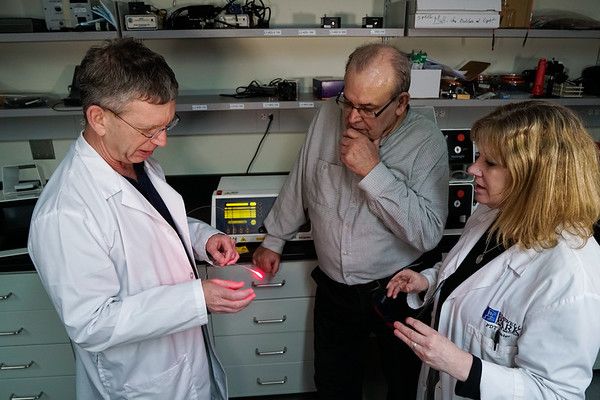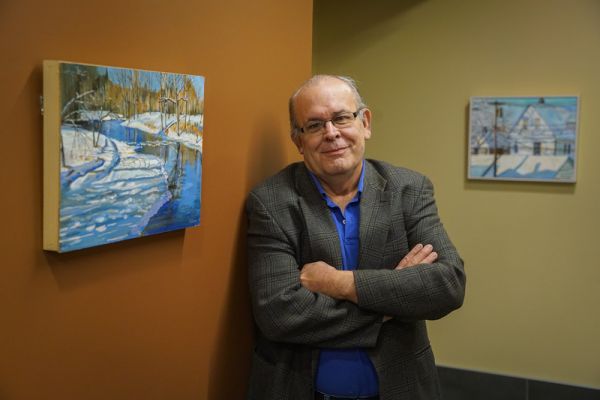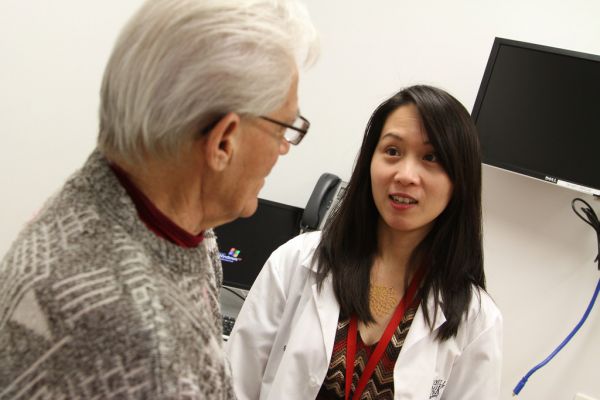In recognition of Lung Cancer Awareness Month, we're sharing once again the inspirational story of Buffalo artist George Grace, who found a way to kick the cigarette habit — permanently — after 50 years of smoking. Learn how he's doing today in this updated article.
Growing up in the Kenfield Projects in Buffalo during the ’60s, George Grace became a fan of the TV show “Run for Your Life.” The story centered on Paul Bryan, a wealthy attorney who finds out he doesn't have long to live. Bryan decides to spend his limited time in the fast lane, drinking, chain-smoking, driving flashy cars and keeping company with beautiful women.
That fantasy lifestyle made a big impression on 11-year-old Grace. “Of all those things, what could I have?” he recalls. “Cigarettes. That whole program was one big cigarette commercial, and cigarettes were very affordable.
“And everybody around me smoked — everybody! — my mother, my uncle, my grandparents, my aunts. And my father had occasional cigars.
“I wanted to show I was cool and get accepted. All my friends were smoking, so I started smoking at 11 or 12. The first time, I coughed my lungs out, but I was determined I was going to master this.” And he did.
Fifty years later, he had lost several close relatives to smoking-related diseases. His wife, Donna, was also a smoker, and “I thought, I’m probably killing her, and she’s probably killing me right back,” Grace recalls. “I surrendered to the fact that it would kill me. I thought, I’ll probably just smoke until it does.”
The Edge: Quitting with a Partner
But then one of his art students mentioned the Smoking Cessation Clinic at the University at Buffalo. The Graces enrolled together, and that decision gave them a big advantage. Research has shown that when both people in a relationship try to improve their health through exercise, weight control, or giving up smoking, their chances of success are much higher than if they go it alone. In the case of smoking, one partner trying to quit solo has about an 8% chance of succeeding, but the odds rise to 50% if both partners quit together.
“I hadn’t seriously thought that I would be able to quit,” Grace admits, but he went to the clinic anyway. Along with the strategies recommended by the program, “I decided to add aversion therapy. With five hours to go before the quit time, I went out and got a full pack of Maverick Light 100s, and I smoked 19 of the 20 in five hours. At one minute to 12:00, I threw the last cigarette out, and the ashtray, the lighters, everything.”
On March 10, 2013, it was all over. “The next morning when I got up, my mouth tasted like a dumpster. I didn’t want to know anything about nicotine for the rest of my life, honest to God.”
Never miss another Cancer Talk blog!
Sign up to receive our monthly Cancer Talk e-newsletter.
Sign up!The Toll of Smoking and the Option of a Novel Treatment
Not long afterward, as Grace described in a recent column in The Buffalo News, his lungs began “cleaning out a half-century of tars and nicotine.” But he knew that after a lifetime of smoking, he was still at risk for serious health problems.
One year later, in March of 2016, he learned that he had squamous non-small lung cancer (NSCLC). Under the care of Roswell Park’s Chumy Nwogu, MD, PhD, FACS, Department of Thoracic Surgery, he joined a clinical trial of a revolutionary new treatment using photodynamic therapy (PDT) for early-stage NSCLC. His most recent checkup showed no signs that the disease had spread.
Was quitting worth it? Grace says he’s exercising more, his senses of taste and smell are stronger, and “everybody says my complexion looks so much better.
“And to my surprise, I have not missed smoking at all.”
This Cancer Talk article first appeared in February 2017. When we contacted Mr. Grace for an update in the fall of 2018, he reported that he is still cancer-free, rides a bike and swims regularly, has lost weight and intends to lose more. During the past year, he earned a degree in Interdisciplinary Arts from Empire State College; created more than 80 new works of art, including some that have been installed at Roswell Park; was nominated for an Artie Award for Art Direction and Set Design for a production of The Full Monty; and gave several poetry readings, among many other achievements. "Not that I ever wasted much time on anything," he says, "but thanks to the surgery and PDT, I'm living more than ever."
Need help quitting? Contact the New York State Smokers’ Quitline at 1-866-NY-QUITS (697-8487) or visit nysmokefree.com.
Editor’s Note: Cancer patient outcomes and experiences may vary, even for those with the same type of cancer. An individual patient’s story should not be used as a prediction of how another patient will respond to treatment. Roswell Park is transparent about the survival rates of our patients as compared to national standards, and provides this information, when available, within the cancer type sections of this website.




